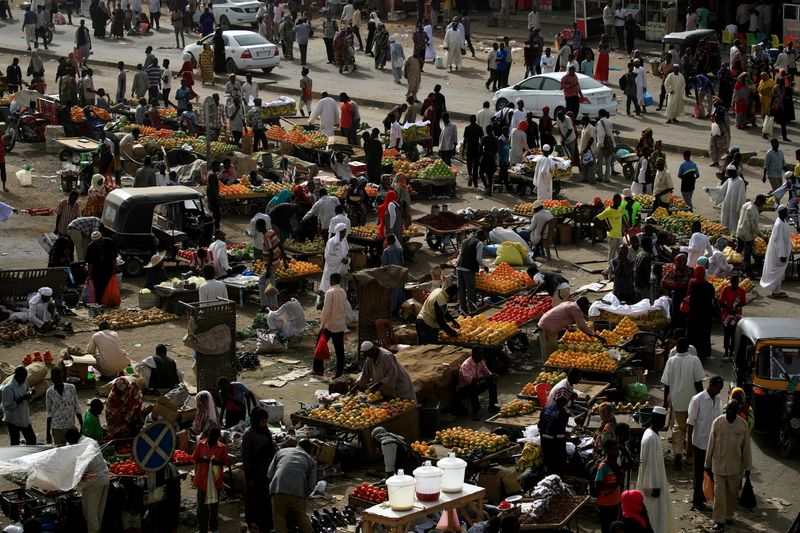By Khalid Abdelaziz
KHARTOUM (Reuters) - For 17-year-old Wa'ad, frequent power cuts in Sudan's capital have meant struggling to revise for secondary school exams by candlelight on many nights.
The increasingly frequent blackouts which often last all day are hitting families and businesses in Khartoum and other Sudanese cities already facing 380% inflation and shortages of petrol, bread and other imports.
They have piled pressure on a transitional government that has won international praise for economic reforms and on Tuesday secured a deal for extensive debt relief, even as living conditions have continued to deteriorate.
After inheriting an economy in crisis with extremely low foreign reserves, the government has no immediate solution for the problem, one official told Reuters.
Authorities cannot import enough fuel or pay for maintenance and spare parts for power stations, said the government official, who asked not to be named.
Sudan's poorly resourced hospitals have not been spared as they battle the COVID-19 pandemic. Officials have acknowledged that outages have caused oxygen shortages and deaths.
Only about one third of Sudan's nearly 45 million population has access to power, but demand for highly subsidised electricity is growing by an average of 11% yearly, faster than most African nations, according to a 2019 World Bank report.
The country faces an average deficit of 1,000 megawatts, said Osman Dawalbeit, general manager at the government-owned Sudanese Electricity Holding Company, noting rising fuel costs.
The energy minister said in March that Sudan's power stations, designed to produce 4,000 megawatts, were operating at just 45% capacity.
About half of Sudan's electricity comes from burning fuel and half from hydropower.
DEFICIT
This year the government reduced subsidies for higher energy consumption levels as part of economic reforms monitored by the International Monetary Fund.
But Dawalbeit said the price of power remained far below production costs, contributing to problems in financing fuel supplies, maintenance and new power stations.
Uncertainty surrounding the dam Ethiopia is completing on the Blue Nile has meant that Sudan has had to reduce its hydropower production, contributing to the deficit, he said.
The debt relief deal announced on Tuesday means Sudan should be able to unlock several billion dollars in new financing that could help ease the foreign currency crunch.
Sudan last year signed a deal with General Electric (NYSE:GE) aimed at increasing power generation by up to 470 megawatts. It is also seeking to increase imports from neighbours Egypt and Ethiopia.
Longer term, renewables may provide an answer.
"The future of electricity production in Sudan is in renewable energy, particularly solar and wind," said Dawalbeit, adding a five-year plan to launch renewables had received funding to start in six months.
Sudan is engaging private sector partners from the United States, Germany, France and Turkey, Dawalbeit said. Solar power projects have been initiated in the cities of Alfasher, Aldeain, and Dongola, he said. The country imported its first wind turbine earlier this month.
In the meantime, however, residents continue to suffer. Temperatures reaching 45 degrees Celsius (113°F) during the hottest months have pushed many to their limits, unable to use fans or air conditioners.
Wa'ad said of the outages: "I am worried that they will cause me to fail my exams and not get into university, which is my life's dream."
Salma Mutasem, another student revising by candlelight, said: "The natural state is the power being out, every other day."
Mohamed Omar, who owns an appliance repair shop in Khartoum, says he can only open on the three days he has daytime power. "We are suffering huge losses, and I'm facing difficulty paying rent and my employees' salaries," he said.
